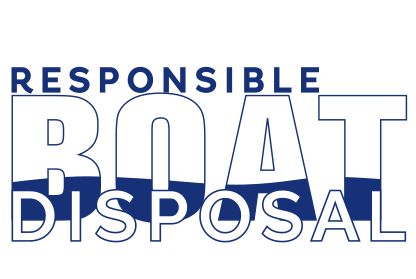Breaking Boats?
Breaking Bad!
Why It Is Not an Option to be Boat Breaking
Boats, with their graceful presence on the water, evoke a sense of adventure and tranquility. However, when it comes to retiring these vessels, the question arises: What should be done with End-of-Life boats?
While some may consider employing boat breakers, it is important to recognise the detrimental consequences associated with breaking boats, particularly from an environmental standpoint.
From minimal salvageable materials to non-recyclable components and transportation inefficiencies, breaking boats proves to be an unaffordable and ecologically damaging choice.
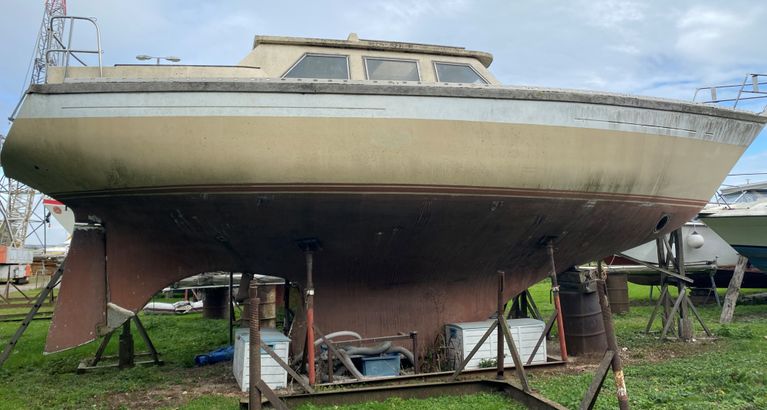
One of the primary reasons breaking boats is so expensive is the limited number of salvageable bits.
While some parts can be repurposed, the reality is that removing and refurbishing these components is truly labour-intensive, making it economically viable only very rarely. Even if the part in question is a ‘big expensive’ one, say, a diesel engine or a winch, its condition in an End-of-Use boat is rarely good enough for selling without additional cost of refurbishing it. Thus, the net contribution to the disposal cost is close to zero.
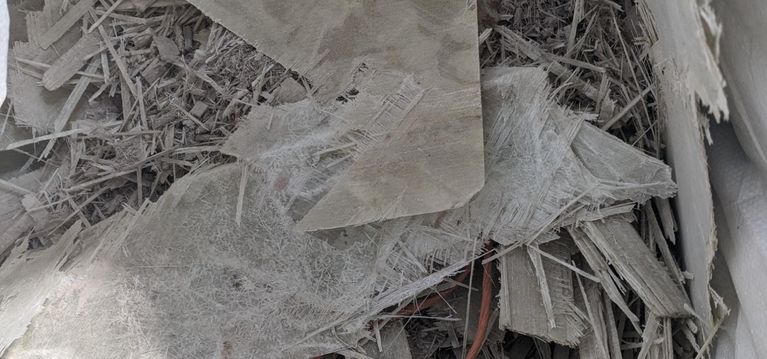
On the other hand, GRP is not recyclable with current technologies available in the UK. If left in a landfill it sticks around for centuries. It might seem an appealing idea just to move a pile of waste somewhere you cannot see it, but it is hardly a responsible solution.
And to move a boat to that dark corner of a landfill, you need fuel, manpower, and specialised equipment, all for one boat. It's not just environmentally unfriendly, it is also prohibitively expensive.
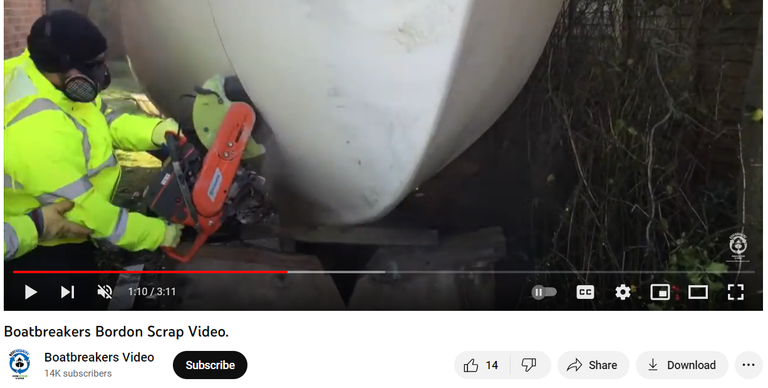
Some might suggest chopping the boat up right where it sits to save on transportation costs. However, cutting on site requires the so called mobile permit from Environment Agency, and is simply dangerous.
Cutting a boat produces lots of GRP dust, which is comparable in harmfulness to asbestos. No need to explain that the release of such hazardous particles into your garden or yard is not welcomed.
With the minimal salvaging, non-recyclable GRP, and transportation nightmares, breaking boats is a blow to the owner’s (or council’s) budget and an eco-disaster for the future generations. Yes, some boats are to be scrapped, but it will be childish doing it without studying alternative solutions such as boat re-homing, repurposing, or donating to appropriate charities.
Our Solution: Re-Homing
Many boats appear rough, but that's frequently only superficial due to lack of use.
This boats can be saved, and we will be glad to find a new enthusiast who would take them for restoration and further use.
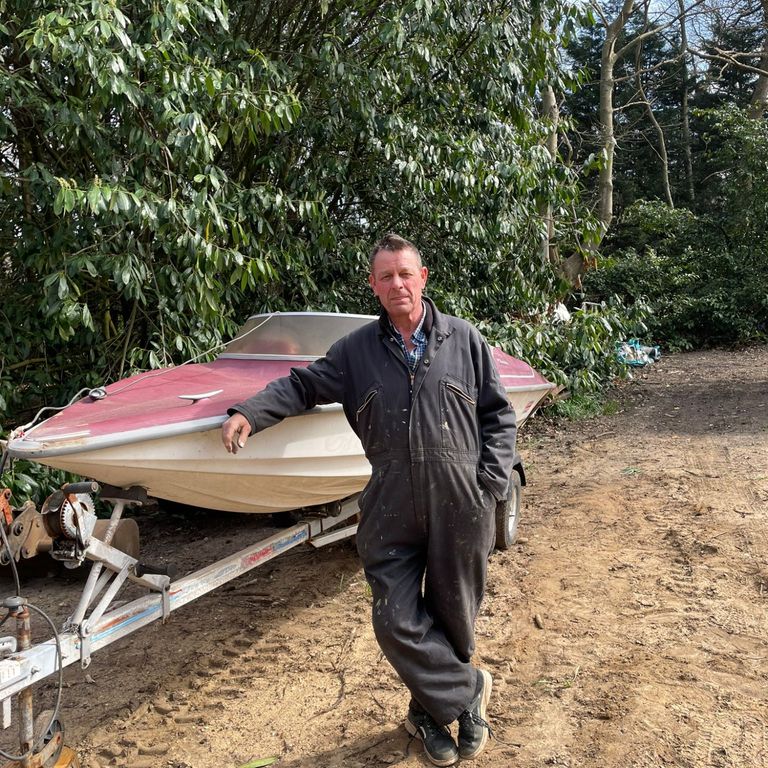
Request a Quote
Telephone: 0161 818 7821
South-West branch:
info@boat-disposal.co.uk
167 Notte Str, Plymouth, Devon, PL1 2HF
and
Haye Down Industrial Estate,
Tavistock PL19 0NN
London and South-East branch:
se@boat-disposal.co.uk
Suffolk Yacht Harbour, Levington, Ipswich IP10 0LN
